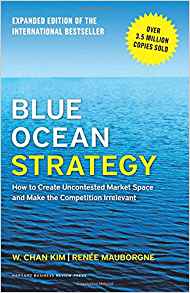INNOVATION AND EXCELLENCE IN TEACHING AND LEARNING
On the 29th March I’ll be speaking at the Universities UK conference, Innovation and Excellence in Teaching and Learning . It looks a good conference and I’ll be running a workshop entitled Teaching excellence – turning the challenge into a strategic advantage for universities.
The workshop will follow up to my recently published book, Excellence in Business School Teaching (available as a free download from www.marketechoes.co.uk). I’m going to involve delegates into a number of themes I believe are fundamental to the future success of universities.
I’ll firstly give some results of my recent research. Faculty were pretty confident, just time constrained. Students were generally satisfied but kept stressing how they wanted lecturers to be interesting, organised and very importantly, find a practice home for their research. A number of academic contributors made the point that as academics we might be fooling ourselves – we don’t tend to discuss our teaching and rarely really admit that we could do better. I also interviewed a high school head teacher because I was interested in getting the secondary education perspective. “There’s a feeling amongst students that lecturers are teaching under sufferance, that they’d rather be doing something else – research.” And interestingly, when I speak to past students, what they really remember are firstly, their friends, the activities and the life they spent at university and secondly, great teaching, which by inference means poor teaching as well.
So I’ll be raising the issue – does this matter? Is teaching strategic for universities? Certainly since I started writing my book, fees, debt, difficult employment market, T Levels and the TEF have all taken on greater significance. And my own view is that this makes teaching (or value for money) even more important.
Yet, since the publication of my book, I’ve done a little more research, into the internal profile of teaching at universities. The findings don’t necessarily support a culture of teaching being strategic. The internal newsletter of one business school (over a six month period), included 31 references to research best practice and only one to teaching best practice. And over a three year period, the learning and teaching internal website of another university included, out of 79 announcements, only 13 with some link to excellent teaching practice. Both examples were hot on NSS scores – but I was left wondering whether providing these were positive then everything else would be fine.
So, what will I be discussing in terms of how to make teaching strategic?
- Direction
Of course it’s absolutely vital for senior management teams to set the tone for their institution, to champion and celebrate teaching excellence (and put it at an equal level to research), to co-ordinate training, development, time and space. But, for me, there needs to a good dose of devolution. In an academic institution, directives from above can only go so far. So I’m a big supporter of subject groups and heads of subject groups. If you think about it, they know their faculty well and understand the subject matter that’s being taught. They can involve their colleagues in teaching improvement, working out what’s best, what needs to be developed and encourage group-wide support and mentoring. But to work, teaching must be high on the “agenda” and there needs to be group head leadership with genuine passion and commitment.
- Understanding students by segment
How well do we really know the students they’re teaching? Not individually but by segment? My high school head teacher threw up an interesting observation. In 30 years of teaching he’d never ever been visited by anyone from higher education institutions whereas every year he visits his primary feeder schools. How can HE really understand the needs and expectations of future students? Another example is that of the MBA. Content is pretty much standard, but typical segments FT, Exec and DL have very different needs. students FT are likely to be younger career changers, Execs time poor, regionally based career ladder climbers, and DLs also climbers, but more global and even more time poor. Teachers need to understand these differences and be sensitive to them. As academics, we might feel worthy recommending 10 journal articles as well as a couple of chapters after each lecture. But this will simply turn off those time poor students. Less is most definitely more.
- Teaching needs to be delivered by experts
I’ll be raising a possibly contentious point. Are academics (and I’m being very broad brush here), experts or introverts? Again, in my research a number of contributors (themselves research academics), mentioned that typically, faculty will have come through a classical academic route, UG, Master’s, PhD, full-time academic. It’s unlikely that they will really understand the worlds in which their students inhabit or want to inhabit. And they will have a cannon of knowledge and a language which most students will never have. So the definition of expert needs to be seen from a student as well as faculty perspective. I thought it worth asking my academic colleagues what is needed to be an expert in the classroom? Firstly, they need to be masters of their material. An expert never reads from a power point slide in class. Next they need to be absolutely up to date. It’s no good being an expert on either a topic or a piece of research that is 20 years old. It’s useful to refer back to but you need to see how perspectives have changed. Experts also make research exciting and accessible.

I cite the experience of a colleague of mine, Professor Stuart Roper. He’s written a book, Corporate Reputation, and one area of his research is about discarded litter and what it says about the brands. He engages with his first year students by asking them to count and categorise the amount of litter that they find on their way home. What’s the result? The students become part of the research process and really see the relevance of research to practice. Other ways of being the expert – use technology to engage students, I know a number of colleagues who use Facebook sites just to encourage interaction about their subject matter. Never be afraid to talk to other experts who might have different insights and use all the resources available. The student body itself is a real hub of information.
- Innovation – never stop trying to improve

I’ll be talking about what I call the Purple rather than Blue ocean. The Blue Ocean is a concept which focuses on doing something completely different in order to compete. The Purple Ocean is more about what we often see in sport – small steps which make that special difference – GLUE – Giving Unexpected Little Extras. When I started DL teaching I listened to previous tutorial recordings to find out how it was done. There seemed to me to be something lacking. A certain sparkle that would engage and keep the attention. I talked to DL students who mentioned the difference between signing in for a tutorial and actually engaging with it, students being able to stay signed in but go off and do something else. So I started to think how could I innovate in order to keep my students engaged? This took me to role models like radio presenters John Humphries and Nicky Campbell, people who consistently grab my attention over the muesli or in the car. What was their sparkle? Could it be emulated? Most definitely yes.
- Teaching must engage
My last point is an obvious one. If we want our students to be inspired by our teaching, it must be teaching which engages. So, how? Well I’ll be reminding delegates what we’ve just spoken about. Good direction, good understanding of students, expertise, innovation and passion all lead towards engagement. But it goes further than that. Confidence comes out of preparation. Movement away from the lectern, around the theatre, shows a confidence to go out and engage. Anyone who says you can’t engage with 100 people at undergraduate level in a lecture theatre is wrong. You might not be able to engage with everybody but you can give it a very good go. Start with a question not a statement – sets the interactive tone. Story telling is hugely important – not just knowledge but applied knowledge. Break a lecture for a few minutes – get students to discuss an issue in pairs and then poll their results through online in-class polling. Avoid previous course cross over – find out what’s gone before. And knowing when to pause, to take a few minutes out, to re-engage.
So, how will I be summarising all this? By saying that for some institutions, teaching excellence could be a great opportunity. For others it could be a big threat. You can’t ignore the fact that students expect great teaching – otherwise why do they come to university in the first place? The OU and sites such as rateyourlecturer.com can’t be ignored. And neither can the government threat – the TEF.
How I can help
If you’d like to know more about my research, please do download my book Excellence in Business School Teaching – Click here or contact me at julian@marketechoes.co.uk to find out about our 8 Bite Sized Workshops in a Day programme where we can deliver up to eight best practice teaching workshops in one day with faculty selecting what they’ll find most useful.

